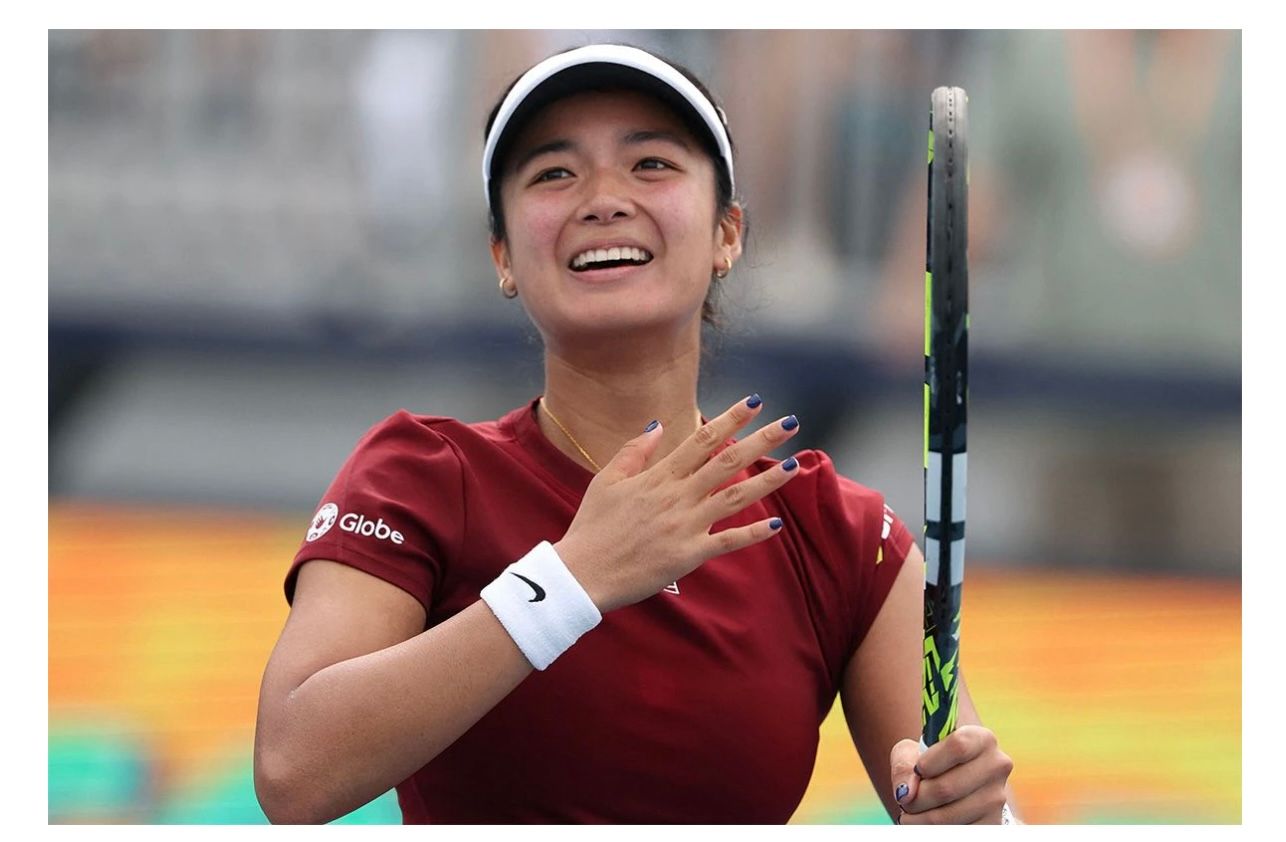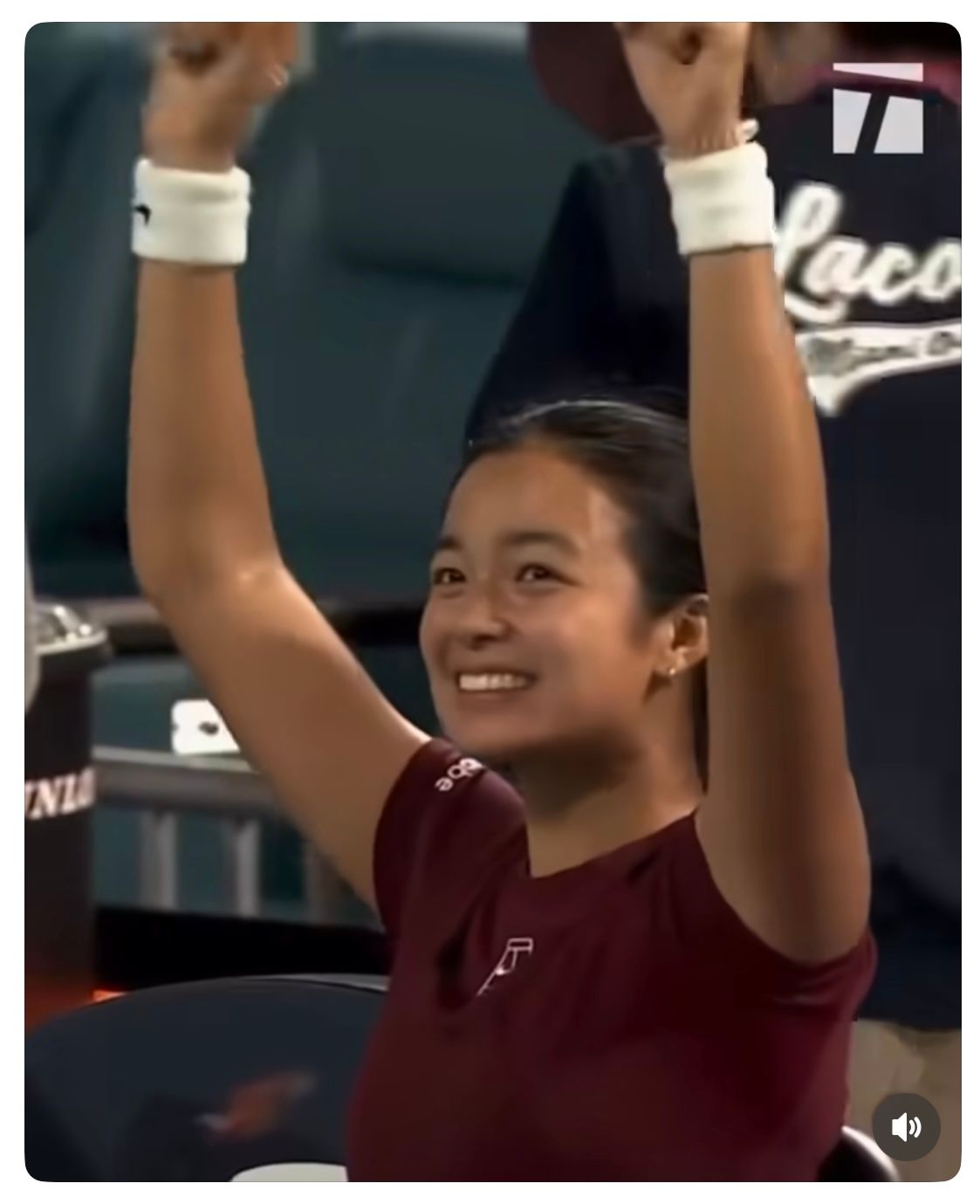HEARD IT THROUGH THE GRIPE-VINE

Last week was undoubtedly the defining moment of Alexandra Eala’s professional tennis career so far. By reaching the semi-finals of the Miami Open, she became our social media personality of the week — over the course of a late Friday morning, uniting this now divided nation, in the pursuit of sports achievement. To be brutally frank, she did not bring home the proverbial “bacon”; like Manny Pacquiao, Yuka Saso, Hidlyn Diaz, and Carlos Yulo have in the past. But if we’re talking tennis, then Alex has most definitely reached the pinnacle for a Filipino tennis player, eclipsing anything our male players or past female achievers have ever managed.
By knocking out past and current Grand Slam winners such as Jelena Ostapenko, Madison Keys, and Iga Swiatek, she ventured into tennis territory that’s potentially career-making. I was reminded of how another wild card, Emma Raducanu, had made a similar run during a US Open no less, becoming champion that year. Of course, the bitter lesson to be learned is that we have not heard from Raducanu since that fairy tale excursion. So the jury is still out as to whether Eala can sustain this sort of momentum.

If anything, it may have been a blessing that she didn’t win the Miami Open — and that it will be more like what the road to Damascus was like for St. Paul; a revelatory moment for Alex, showing her that she can compete at the topmost level, has the mental fortitude to lose the first set and come back, and remains hungry, craving for more of the taste that she got to savor. With her US Open victory, Raducanu was unexpectedly on top of the tennis world, and she subsequently fell off. It’s years later, and she’s still trying to recover.
From a ranking of 140th in the WTA rankings, this Miami run will place 19-year-old Alex in the top mid-70’s — a jump halfway up the table. She may not have to go through qualifying rounds, or hope for a wild card entry; instead, she can automatically enter the main draws of the WTA events to come this 2025. You can’t imagine what kind of relief that will be for her team — conserving her strength and stamina for more meaningful matches, and raising the likelihood of earning serious money consistently.
Professional tennis is an expensive sport to participate in — there’s travel, accomodations, equipment, tennis and fitness coaching, physical therapy — to name just a few. Entering tournament after tournament, even with sponsorship support, is a financially draining exercise. And that’s why I was shaking my head when several media platforms were so crass as to headline their Eala coverage with what prize money she was guaranteed to earn by reaching the quarterfinals, and then the semi’s.

That’s prize money up for grabs every week of the tour, — it just gets higher with the four Slams, and shoots down with the minor tournaments; but it’s there for any player to amass by consistently reaching the mid-point of the tournaments. That’s pro-tennis today, but don’t think for a moment that a player, and his or her team, did not invest and spend a crazy amount of money and time to reach that point. Highlighting her prize money was like inviting people to now claim they’re related to Alex, and with no realization at all of what it took her to finally have one decent payday.
Ask her parents what they’ve spent over the years, and good luck if they can even quantify the last five years at this point. It’s more about commitment and blind faith that Alex could one day fulfill her potential. And when I say tennis is an expensive, even elitist, sport, that will hold true back to the first time Alex held a tennis racket. Tennis courts aren’t like basketball courts that spring up in every barangay, or are sponsored by LGU’s. One had parents who could afford to be members of an exclusive club where there were tennis courts, lived in a subdivision that had a court, or toiled as a trainer/ballboy who was recognized as a raw talent, and acquired a “patron.” In that sense, it’s somewhat similar to golf.
Tennis is a confusing, esoteric sport; as so many people I know were avidly watching the match, then turning to me, befuddled with the scoring. They would ask me to explain the numbers flashed — the difference between points, deuce, advantage, games, and sets. They were uncertain as to who was winning, just waiting for cues from the commentator.
So that’s still another reason why tennis may never truly go mainstream in this country. We’re more than ready to cheer for Alex, but her kind of dedication and talent is hard to find and nurture. It's not impossible though, just look at the smaller population of some East European nations, which manage to produce world-ranked players across both genders. But that’s with a state-sponsored tennis development system in place in those countries.
And if there’s one selfish reason I hope tennis doesn't suddenly skyrocket in popularity, it's the availability of courts for me to play in. I regularly book a nearby outdoor court, and it’s relatively easy to book the early mornings, as I like to play before showering and heading to work. So I really don’t need parents suddenly goading their children to be the next Alex Eala, practicing before their classes.